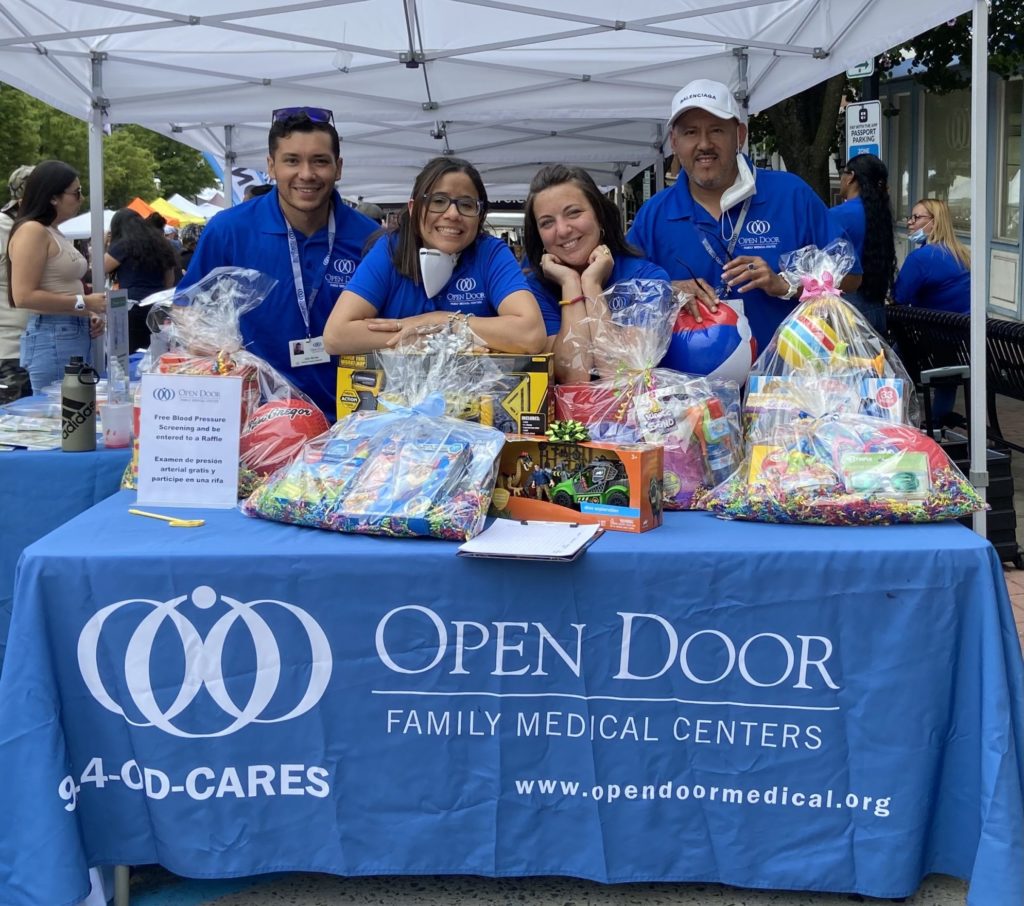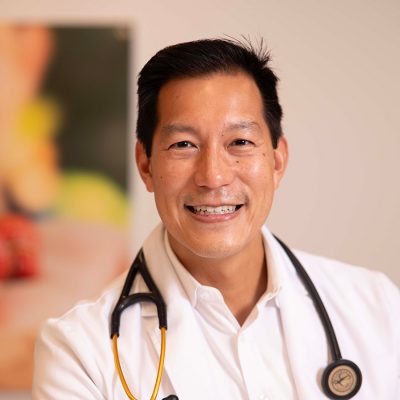“If you give a man a fish, you feed him for a day. If you teach a man to fish, you feed him for a lifetime.”
That’s the thinking behind the mission of the Care Coordination and Outreach team at Open Door Family Medical Center. It’s one thing to provide quality and affordable health care to an underserved population – it’s another thing to educate people on how they can get the most out of their health care services.
After all, navigating an often complex – and at times confusing – health care system can be a challenge for anyone. For those who come from different backgrounds, who speak different languages, who follow different cultures and traditions, it can seem almost impossible.
October is Hispanic Heritage Month and for that reason – although our services support all Open Door patients – we’d like to highlight here the ways in which we serve those of our patients with Hispanic backgrounds.
“Our Hispanic patients come from cultures rich in traditions and beliefs, yet they can feel uncomfortable sharing their personal information or asking certain questions of their doctors. They may also carry certain misconceptions and misunderstandings that can be a barrier to better clinical outcomes,” said Yanira Padilla Cruz, Associate Director of the Care Coordination and Outreach Program. “Our job is to educate and engage them and, when necessary, to help them communicate better with their providers so they can get connected to treatment sooner.”
This can range from helping patients become more comfortable asking their doctor questions they may have been afraid to ask, to getting those who are managing a chronic illness to make certain changes in their diet; from getting patients past the stigma many feel about referrals to a behavioral health specialist, to being shown how to access their medical insurance card.
“We educate them about what will happen during their doctors’ visits,” said Cruz. “In the Spanish culture, for example, if you’re sick you feel like you need medication. And if ‘My doctor didn’t prescribe any,’ the thinking is ‘They didn’t help me.’ Or they may disclose to our team, but not their doctor, what they are doing to treat themselves, like using natural remedies, which can cause negative interactions with prescriptions. We educate them on the importance of being honest and sharing this information with their medical providers.”
Recently, the Care Coordination and Outreach Team noticed that many Hispanic women in the prenatal program had decided on their own to stop taking the vitamins prescribed for them for fear it could harm themselves and their baby. “They tell us halfway through their pregnancy they haven’t taken their vitamins, but they don’t want to tell their doctor,” said Cruz. “Iron levels as a result could be low and the clinician wouldn’t know why because they never disclosed it.”
She recently discussed with a patient in Open Door’s diabetes care education program the importance of maintaining good foot hygiene to reduce the likelihood of diabetic neuropathy, or nerve damage.
“We were talking about the importance of podiatric care and she said ‘Why do I have to see a doctor to keep my nails pretty? I can just go to a nail salon.”
When it comes to diet, the team will discuss the importance of portion control, reducing red meat and rice intake, and making minor changes in the seasoning of a traditional meal to make it healthier without eliminating those foods they grew up with. “Some patients may refuse to see the nutritionist because they think it means they can only eat salads,” said Cruz. There is also the common perception among patients with diabetes, she said, that “Fruits are good for you which is why they eat a banana in the morning, an apple at noon and a pineapple in the afternoon. We educate them that fruit has natural sugars and explain the importance of diet modification, while respecting their traditions. We never say you can’t eat rice or tortillas, just that you need to modify how much of this you eat.”
Likewise, mental health services have long been stigmatized in the Hispanic community. “We don’t use the words ‘mental health’ in approaching patients who we feel can benefit by seeing a behavior health specialist,” said Cruz. “Instead, we tell them these are specialists who help people with their emotions. In Hispanic culture, a mental health professional treats someone who is crazy and a social worker is a person who will take your kids away.”
Cruz and her team of patient advocates, navigators and care managers are all bilingual and come from places that mirror those of their patients – Puerto Rico, Dominican Republic, Mexico, Ecuador, Guatemala, and Colombia. This is important, she says, because even the word for something as simple as green peas, can be different in each of these countries. Cruz, a nurse in her native Puerto Rico, came to the New York area in 2011. Like the other members of her team, she has lived in her patients’ shoes, fully aware of what they are going through.
“We’re trained to provide education in plain language, language the patient will understand,” she said. “It’s important to listen and engage them. Our job is to assess how much they understand and what the patient thinks about the recommendations offered by the medical provider and, perhaps, why they are declining to follow up.”
Patient advocates may see patients on the same day they see their medical provider or follow up later by phone.
“We offer an additional layer of empathy for our patients because we all have family members who went through the same scenarios or have similar needs. We believe by educating one person at a time, we are educating the community.”




